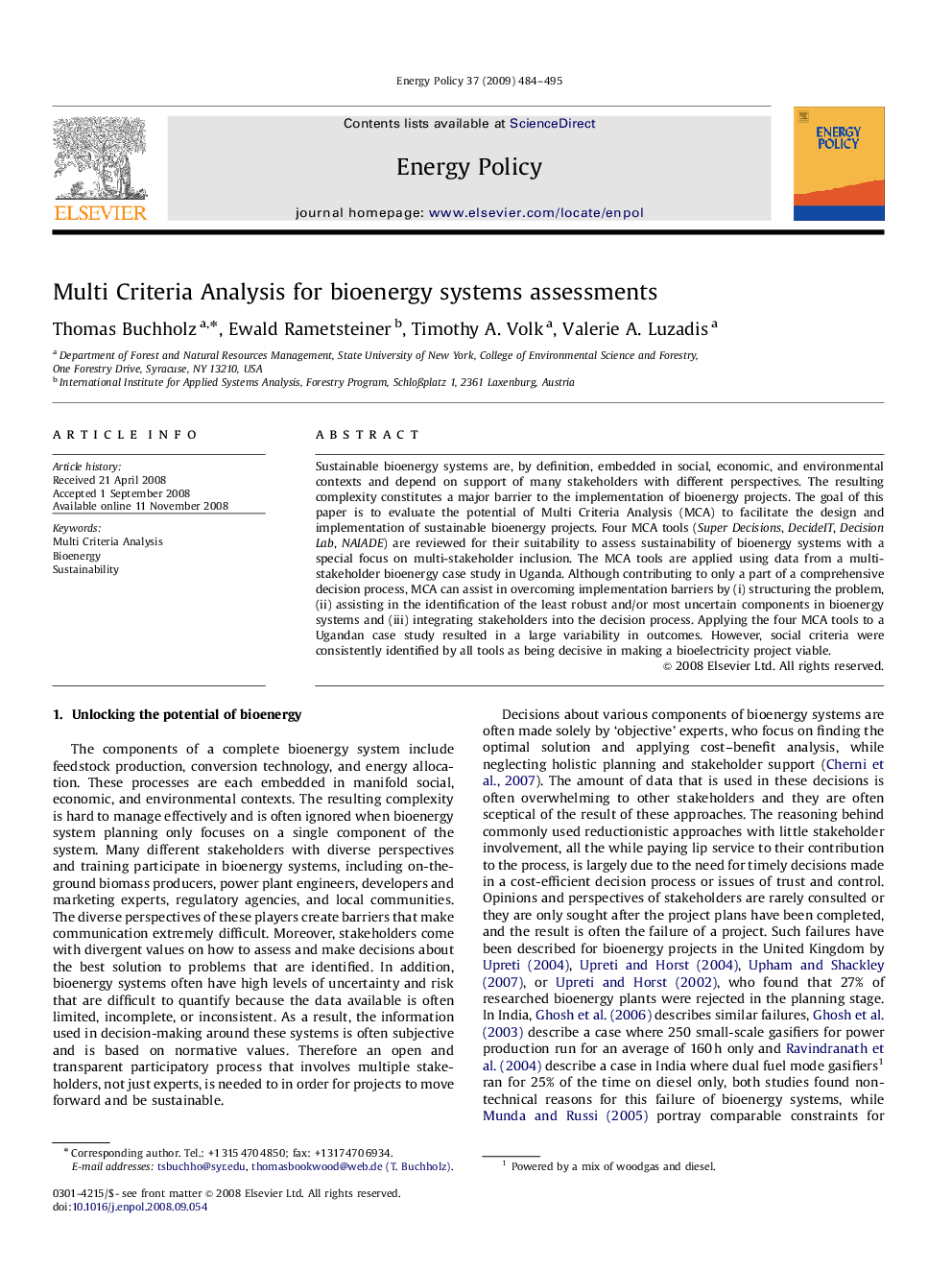| Article ID | Journal | Published Year | Pages | File Type |
|---|---|---|---|---|
| 993769 | Energy Policy | 2009 | 12 Pages |
Sustainable bioenergy systems are, by definition, embedded in social, economic, and environmental contexts and depend on support of many stakeholders with different perspectives. The resulting complexity constitutes a major barrier to the implementation of bioenergy projects. The goal of this paper is to evaluate the potential of Multi Criteria Analysis (MCA) to facilitate the design and implementation of sustainable bioenergy projects. Four MCA tools (Super Decisions, DecideIT, Decision Lab, NAIADE) are reviewed for their suitability to assess sustainability of bioenergy systems with a special focus on multi-stakeholder inclusion. The MCA tools are applied using data from a multi-stakeholder bioenergy case study in Uganda. Although contributing to only a part of a comprehensive decision process, MCA can assist in overcoming implementation barriers by (i) structuring the problem, (ii) assisting in the identification of the least robust and/or most uncertain components in bioenergy systems and (iii) integrating stakeholders into the decision process. Applying the four MCA tools to a Ugandan case study resulted in a large variability in outcomes. However, social criteria were consistently identified by all tools as being decisive in making a bioelectricity project viable.
